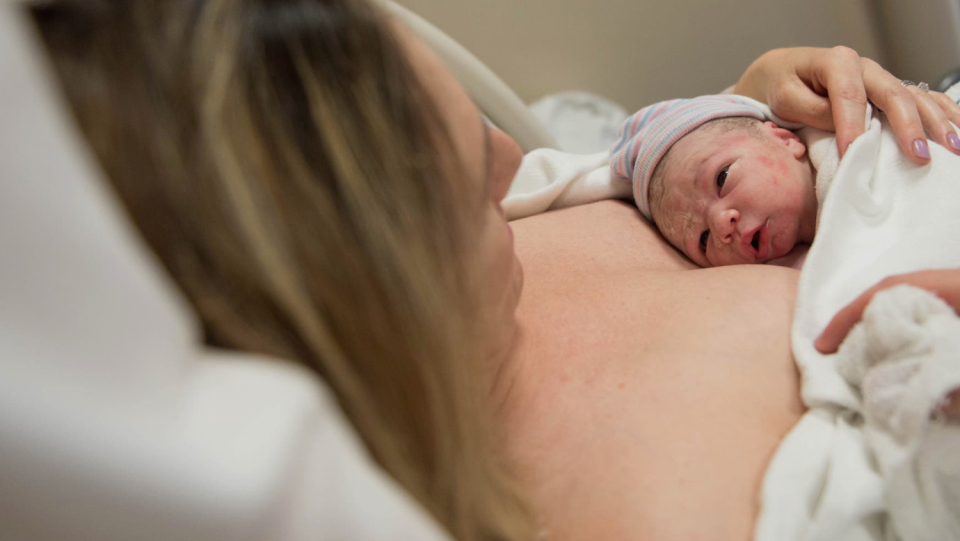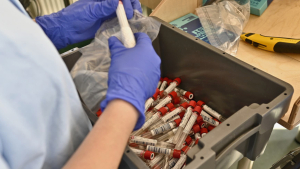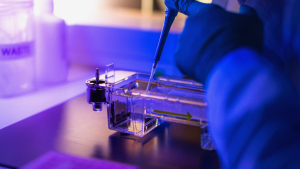For several years now, researchers have been fighting when our body is populated by viruses, bacteria and other microorganisms. While it was thought for a long time that this was only done in the course of the birth, recent studies recently reported that amniotic fluid and placenta samples already contained such microorganisms. As a result, fetuses already have a so -called microbiome. An international team now clearly contradicts this: Based on a multidisciplinary analysis that was published in the specialist magazine "Nature", it found that the womb is usually sterile.
Our microbiome, i.e. all microorganisms found in and on the skin, mucous membranes and organs, plays a central role in our health and our immune system. Newborns already have this immune system – but its formation still poses questions for science, in particular when a fetus first comes into contact with bacteria, viruses and other microbes.
For a long time it was considered that the unborn child, as well as the uterus in which it grows up, including the placenta and amniotic fluid, are sterile in a healthy pregnancy. However, since 2010, several research teams have reported finding bacteria in samples of the placenta and amniotic fluid. From this, they concluded that there was a fetal microbiome, which in turn would mean that the current idea of the development of the immune system in the unborn child would have to be completely reassessed.
The thesis of the fetal microbiome is now vehemently contradicting a consortium of 46 experts from reproductive biology, microbiology and immunology. The members of the team under the direction of Jens Walter from the University College Cork checked the analyzes of the studies discussed from their respective specialist perspectives and unanimously came to the conclusion that the detection of microbiomes in unborn people is due to impurities of samples.
Some bacteria and viruses can penetrate the placenta
For example, amniotic fluid samples differ significantly in a caesarean section and natural births, which should not be the case with a general fetal microbiome. "We are aware that our position contradicts dozens of publications that provide indications of microbial populations in the womb, but we are convinced of the validity of our multi -layered approach," concludes the authors.
As study leader Walter adds in a name article, a fetal microbiome would contradict the knowledge of human biology: "We know, for example, that the placenta is full of anatomical and immunological barriers that prevent microbes from entering and colonizing it." This is even very important in order to prevent infections in the womb as far as possible. In fact, very few microorganisms can penetrate the placenta, including cytomegaloviruses, rubella and chickenpox viruses, as well as listeria.
The authors now hope that their consensus will be an orientation aid for future research. "We create a solid scientific basis to concentrate the research efforts where they are most effective," writes Walter. The knowledge that the fetus is in a sterile environment confirm that the settlement with bacteria during the birth and early postnatal phase takes place - this has also been shown by other current studies, according to which babies are the first microbes during the Get birth process and more through breast milk.
It is still important to find out how the immune system of the fetus develops. With the published consensus, however, the research focus should now shift away from living microbes to the cell components of microbes and the chemicals they produce, so-called metabolites, says Walter: "It has been shown that such compounds penetrate the placenta and prepare the immune system of the fetus for life in a germ-laden world.



















